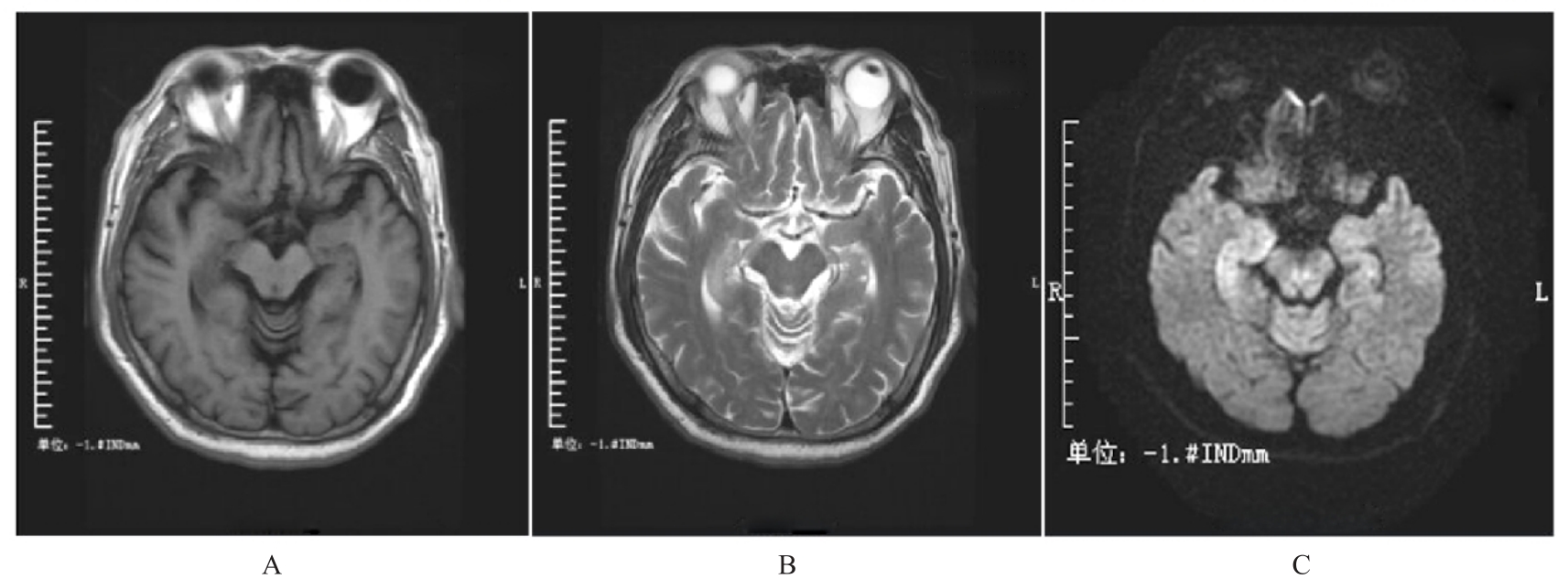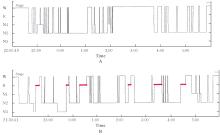吉林大学学报(医学版) ›› 2024, Vol. 50 ›› Issue (4): 1137-1143.doi: 10.13481/j.1671-587X.20240429
LGI-1抗体阳性自身免疫性脑炎伴睡眠结构异常和认知障碍1例报告及文献复习
- 1.北华大学基础医学院病理生理学教研室, 吉林 吉林 132021
2.吉林省吉林市中心医院神经内科, 吉林 吉林 132011
Anti-LGI-1 positive autoimmune encephalitis complicated with sleep structure abnormality and cognitive impairment: A case report and literature review
Yang LIU1,Zhi LIU2( ),Ke SUN2,Jiahui JIN2,Jun REN2
),Ke SUN2,Jiahui JIN2,Jun REN2
- 1.Department of Pathophysiology,School of Basic Medical Sciences,Beihua University,Jilin 132021,China
2.Department of Neurology,Central General Hospital,Jilin City,Jilin Province,Jilin 132011,China
摘要:
目的 分析富亮氨酸胶质瘤失活蛋白1(LGI-1)抗体阳性自身免疫性脑炎(AE)(LGI-1 AE)并发睡眠障碍和认知障碍患者的临床资料,探讨其可能的病理机制。 方法 患者,男性,68岁。因记忆力减退2个月,抽搐1个月入院,临床诊断LGI-1 AE,给予人免疫球蛋白联合甲泼尼龙琥珀酸钠治疗后症状好转。在排除任何药物影响下,分别于急性期及恢复期对患者进行神经心理学评估及包括睡眠多导图(PSG)检查的睡眠评估。 结果 急性期评估提示患者存在严重认知障碍,简易精神状态检查量表(MMSE)评分22分,蒙特利尔认知评价量表(MoCA)评分19分。PSG检查,总睡眠时间明显缩短(265 min),睡眠全程碎片化,睡眠效率降低,N3和快速眼动期(REM)睡眠完全缺失。恢复期评估,患者认知功能改善(MMSE评分30分,MoCA评分26分),PSG检查总睡眠时间正常,睡眠潜伏期13.5 min,睡眠碎片化明显改善,睡眠效率提高(84.3%),N3期睡眠26 min(5.1%),REM期睡眠69 min(13.6%)。 结论 LGI-1 AE患者睡眠结构的异常与认知障碍在发病和转归方面同步,可能是LGI-1 AE患者认知障碍的病因之一。睡眠障碍的病理起源可能为下丘脑。下丘脑分泌素和LIM同源框(lhx6)通路可能成为纠正睡眠结构同时治疗认知障碍的新靶点。
中图分类号:
- R512.3




